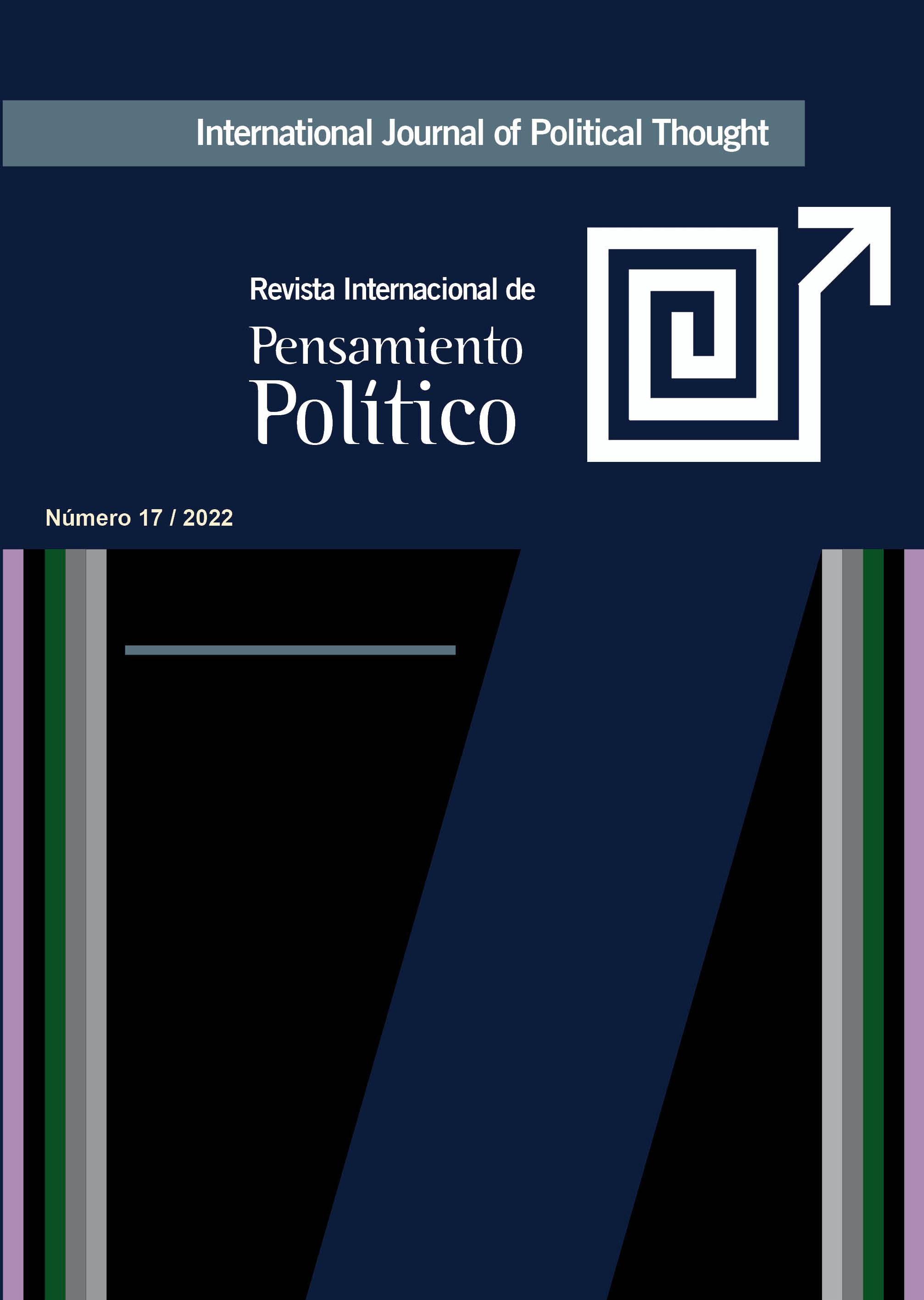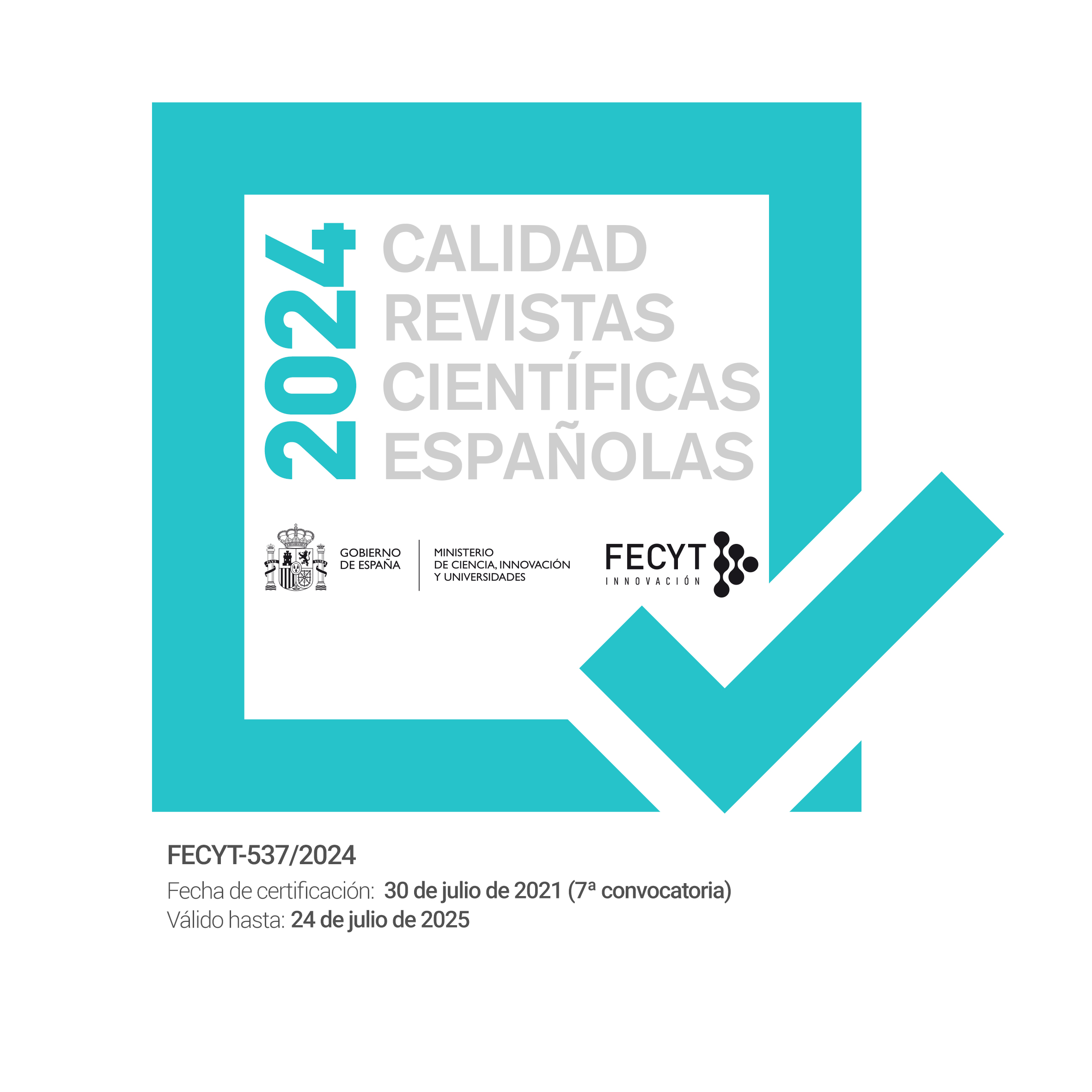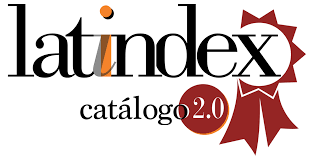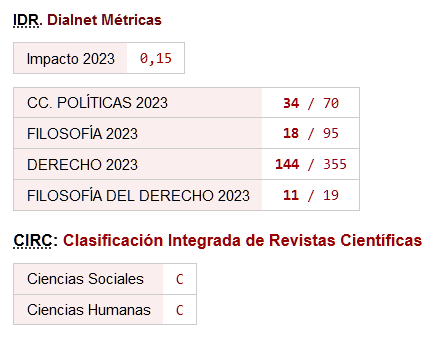The legal world before the challenges of the digital society
Is a new philosophy of law necessary?
DOI:
https://doi.org/10.46661/revintpensampolit.7523Keywords:
Digital Society, Philosophy of Law, Theory of Legal knowledge, critical jurist, law concept, gender mainstreamingAbstract
Law, in contemporary societies, presents itself with special characteristics that demand -from the market- a new legal professional and, consequently, a specific training to cover such needs. Likewise, the scientific-technological revolution, also called the Third Industrial Revolution, forces us to review the traditional paradigms of legal science, now at the mercy of this new reality. The possibilities for a new type of governance, the modulations of legitimacy and the democratic principle, largely due to the risks of abandoning oneself to digital platforms, and the uncontrolled degeneration of discrimination fueled by the biased training of algorithms, they force, among other compelling reasons, the Philosophy of Law to respond in an indubitable manner to the lack of protection of the most basic rights. In framework, the binding principle of gender mainstreaming, marks, in turn, a new way of doing Law, betting on a transforming instrument of a subordinate status quo between human beings and the safeguarding of their rights.
Downloads
References
Atienza, M. (1985). Introducción al Derecho, Barcelona: Barcanova.
Barrère, M.A. (2019), Feminismo y Derecho. Fragmentos para un Derecho antisubordiscriminatorio, Chile: Ediciones Olejnik.
Blázquez Martín, D. y García Añón, M.J. (2013). "Las Clínicas jurídicas españolas en el Movimiento Clínico Global", en Introducción a la traducción castellana de Bloch, F.S. (ed.) (2013), El Movimiento Global de Clínicas Jurídicas. Formando juristas en la Justicia Social, Valencia: Tirant lo Blanch.
Bobbio, N. (1988). Voz "Philosophie du Droit", en Dictionnaire encyclopédique de théorie et de sociologie du droit, a.c. de Arnaud, J.A. y otros, Paris, Bruxelles: LGDJ, E. Story-Scientia.
Bobbio, N. (1980). "Naturaleza y función de la Filosofía del Derecho", en Bobbio. N., Contribución al estudio del Derecho, Valencia: Fernando Torres.
Cardinaux N. y Palombo, M.A. (2007). "El pensamiento crítico: llaves, rutas y señuelos", Academia. Revista sobre enseñanza del Derecho, 5.
De Julios Campuzano, A. (2019). Constitucionalismo: un modelo jurídico para la sociedad global, Madrid: Aranzadi.
Díaz, E. (1980). Sociología y Filosofía del Derecho, Taurus: Madrid.
Díaz Martínez, C. y Díaz García, P. (2020), "Hombre es a mujer como inteligencia es a lucirse. Los big data y la desigualdad de género", en Maffia, D. et al. (comp.). (2020), Intervenciones feministas para la Igualdad y la Justicia, Buenos Aires: Editorial Jusbaire.
Facio, A. (2014). La responsabilidad estatal frente al derecho humano a la igualdad, México: Colección Reflexiones contemporáneas.
Gil Ruiz, J.M. (2012). Las nuevas Técnicas Legislativas en España: los informes de Evaluación de impacto de Género. Valencia: Tirant lo Blanch.
Gil Ruiz, J.M. (2014). "La Filosofía del Derecho: entre un nuevo Derecho amenazado y una Ciencia jurídica desfasada", Anuario de Filosofía del Derecho, pp. 241-270.
Gil Ruiz, J.M. (2015), "The Woman of Legal Discourse: a contribution from theCritical Legal Theory", Quaestio iuris, 8 (3). https://doi.org/10.12957/rqi.2015.18806
Gil Ruiz, J.M. (2018), El Convenio de Estambul como marco de Derecho antisubordiscriminatorio, Madrid: Dykinson. https://doi.org/10.2307/j.ctv6hp3p8
Gil Ruiz, J.M. (2021). "The paradigm of Legal Science in a Global Digital Society", Revista de Direitos e Garantias Fundamentais, 22 (2). https://doi.org/10.18759/rdgf.v22i2.2080
Goldfard, P. (2012). "Back to the Future of Clinical Legal Education", Boston College Journal of Law & Social Justice, 32 (2).
Gutérres, A. (2018), Prólogo en el Informe sobre los Objetivos de Desarrollo Sostenible, ONU. Accesible en www.unwomen.org
Flores Anarte, L. (2020). Estado del Bienestar y políticas públicas de igualdad en España: ¿hacia la emancipación de la mujer?, Valencia: Tirant lo Blanch.
Foucault, M. (1992). Microfisica del poder, Madrid: ediciones Endymion.
Foucault, M. (1986). Vigilar y castigar, Madrid: Siglo XXI.
Foucault. M. (1978). La arqueología del saber. México: Siglo XXI
Habermas, J. (1987). Teoría de la acción comunicativa II, Madrid: Taurus.
Irti, N. (1992). La edad de la descodificación. Barcelona: Bosch.
Kant, I. (1784) (2004). "Respuesta a la pregunta: ¿Qué es la Ilustración?", Madrid: Alianza Editorial.
López Calera, N.M. (1992), Filosofía del Derecho (I), Granada: Editorial Comares.
Maffia, D. (2020). "Sesgos de género en la Inteligencia Artificial", en Maffia, D. et al., Intervenciones feministas para la Igualdad y la Justicia, Buenos Aires: Editorial Jusbaires, pp. 319-336.
Maffia, D. et al. (2020), Intervenciones feministas para la Igualdad y la Justicia, Buenos Aires: Editorial Jusbaires.
Núñez, J. M. R. (2019). La Política Pública de Igualdad de Género en la Unión Europea ¿en una coyuntura crítica?. Dykinson ebook. https://doi.org/10.2307/j.ctv105bch6.44
O'Neil, C. (2017). Armas de destrucción matemática. Cómo el Big Data aumenta la desigualdad y amenaza la democracia, Madrid: Capitán Swing.
Peces Barba, G. (1983). Introducción a la Filosofía del Derecho, Madrid: Debate, Madrid.
Pérez Luño, A.E. (1982). "La Filosofía del Derecho y la formación de los juristas", Sistema: Revista de Ciencias Sociales, 49.
Pérez Lledó, J.A. (2002). "Teoría y práctica en la enseñanza del Derecho", AFDUAM, 6. (Disponible en htpps://www.uam.es/otros/afduam/pdf/6/6900232-195_268.pdf)
Pitch, T. (2003). Un derecho para dos. La construcción jurídica de género, sexo y sexualidad, Madrid: Trotta.
Prieto Sanchís, L. (1987). "Un punto de vista sobre la Filosofía del Derecho", Anuario de Filosofía del Derecho.
Rubio, A. (2013). "De la Igualdad Formal al Mainstreaming", en Políticas de Igualdad de Oportunidades entre Hombres y Mujeres de la Junta de Andalucía, Sevilla: Instituto Andaluz de Administraciones Públicas y Consejería de Justicia.
Saavedra, M. y Maresca, M. (1980-81). "Sobre la ciencia jurídica dominante en las Facultades de Derecho: la crisis de la reforma", ACFS, nº 20 y 21: La crisis de las Facultades de Derecho, p. 93. Reeditado en el número especial aniversario, ACFS: Uno de 50, nº 50, 2016.
Sacristán, M. (1968). Sobre el lugar de la Filosofía en los estudios superiores, Barcelona: Ed. Nova Terra.
Selbst, A. et al. (2019). "Fairness and Abstraction in SocietechnicalSystem", en AT 19: Abstract de la Conferencia sobre Justicia, Responsabilidad y Transparencia, Nueva York. Disponible en https://dl.acm.org/citation.cfm?id=3287598
Smart, C. (1994), "La mujer del discurso jurídico", en Larrauri, E., (Comp.), Mujeres, Derecho Penal y Criminología, Siglo XXI de España Editores, Madrid, 1994.
Turing, A. (1950). "¿Puede pensar una máquina". Revista Mind. Disponible en: http://www.librosmaravillosos.com/puedepensarunamaquina/indez.html
Wiethölter, R. (1969). "Anforderungen An den Juristenheute", en Wassermann, R., Erziehung Zum Establishment. Juristenaubildung in Kritischer Sicht, Heidelberg: Verlag C. F. Müller Karlsruhe.
Downloads
Published
How to Cite
Issue
Section
License
Copyright (c) 2022 Juana María Gil Ruiz

This work is licensed under a Creative Commons Attribution-NonCommercial-ShareAlike 4.0 International License.
Open access policy
Free and open access is allowed to any interested party to all the contents of the journal issues, free of charge, being able to print and transfer all the articles, with the only condition of specifying the source and authorship.
The journal: a) does not charge authorship costs for the processing of articles or for their submission, b) maintains copyright for authors without restrictions, c) facilitates authors to keep their publication rights without limitations.
The International Journal of Political Thought is an original work of the Laboratory of Political Ideas and Practices of the Pablo de Olavide University. All articles included in the Journal are original work of their respective authors. This Journal is freely offered to the scientific and academic community at no cost and releases the contents according to the license "Attribution-NonCommercial-ShareAlike 4.0 CC BY-NC-SA" of the Creative Commons project available in the following url: https://creativecommons.org/licenses/by-nc-sa/4.0/legalcode
If you wish to translate or compile any of the articles available here, please contact us at contacto













 ISSN: 1885-589X
ISSN: 1885-589X  Universidad Pablo de Olavide
Universidad Pablo de Olavide